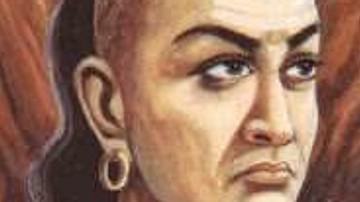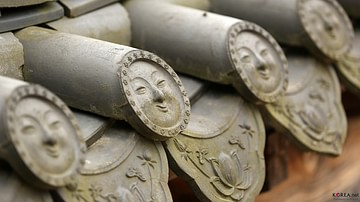Search
Search Results

Definition
Mitanni
The Kingdom of Mitanni, known to the people of the land, and the Assyrians, as Hanigalbat and to the Egyptians as Naharin and Metani, once stretched from present-day northern Iraq, down through Syria and into Turkey and was among the greatest...

Definition
Aethelflaed, Lady of the Mercians
Aethelflaed (r. 911-918 CE) was the daughter of King Alfred the Great of Wessex (r. 871-899 CE) and became queen of Mercia following the death of her husband Aethelred, Lord of the Mercians (r. 883-911 CE). She is best known as the “Lady...

Definition
Library of Ashurbanipal
The Library of Ashurbanipal (7th century BCE) is the oldest known systematically organized library in the world, established in Nineveh by the Neo-Assyrian king Ashurbanipal (r. 668-627 BCE) to preserve the history and culture of Mesopotamia...

Definition
Urbanization
Urbanization is the process by which rural communities grow to form cities, or urban centers, and, by extension, the growth and expansion of those cities. Urbanization began in ancient Mesopotamia in the Uruk Period (4300-3100 BCE) for reasons...

Definition
Chanakya
Chanakya (l. c. 350-275 BCE, also known as Kautilya and Vishnugupta) was prime minister under the reign of Chandragupta Maurya (r. c. 321-c.297 BCE), founder of the Mauryan Empire (322-185 BCE). He is best known as the author of the political...

Definition
Mehmed II
Mehmed II (1432-1481 CE), also known as Mehmed the Conqueror, was the seventh and among the greatest sultans of the Ottoman Empire. His conquests consolidated Ottoman rule in Anatolia and the Balkans, and he most famously triumphed in conquering...

Definition
Temple at Uppsala
The Temple at Uppsala was a religious center dedicated to the Norse gods Thor, Odin, and Freyr located in what is now Gamla Uppsala in Sweden. It is described by the 11th-century historian Adam of Bremen as the most significant pagan site...

Definition
Clovis I
Clovis I (or Chlodovech, 466-511/513 CE), king of the Franks, is considered the founding father of the Merovingian Dynasty, which would continue for over 200 years. Clovis became king at the age of 15, and by the time of his death 30 years...

Definition
Bone Rank System
The Bone Rank System (Golpum or Kolpum) of ancient Korea was used in the Silla kingdom (57 BCE – 935 CE) in order to signal a person's political rank and social status. Membership of a particular rank within the system was extremely important...

Definition
Ivan III of Russia
Ivan III of Russia (Ivan the Great) was the Grand Prince of Moscow and Russia from 1462 to 1505. Ivan III was born in 1440 to Grand Prince Vasily II of Moscow (r. 1425-1462) and his wife, Maria Borovsk (l. c. 1420-1485). He served as co-ruler...